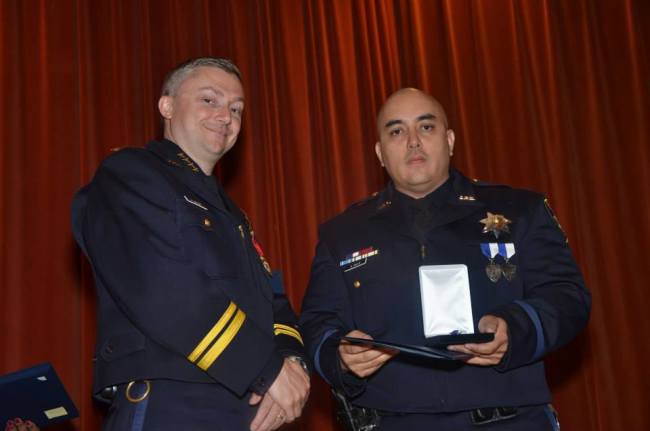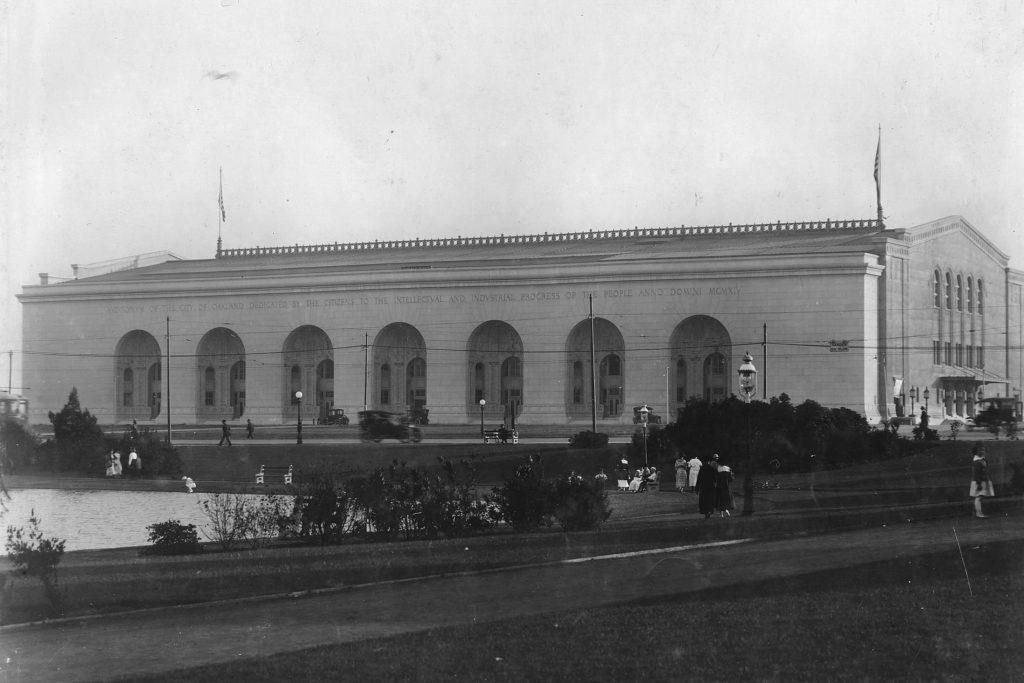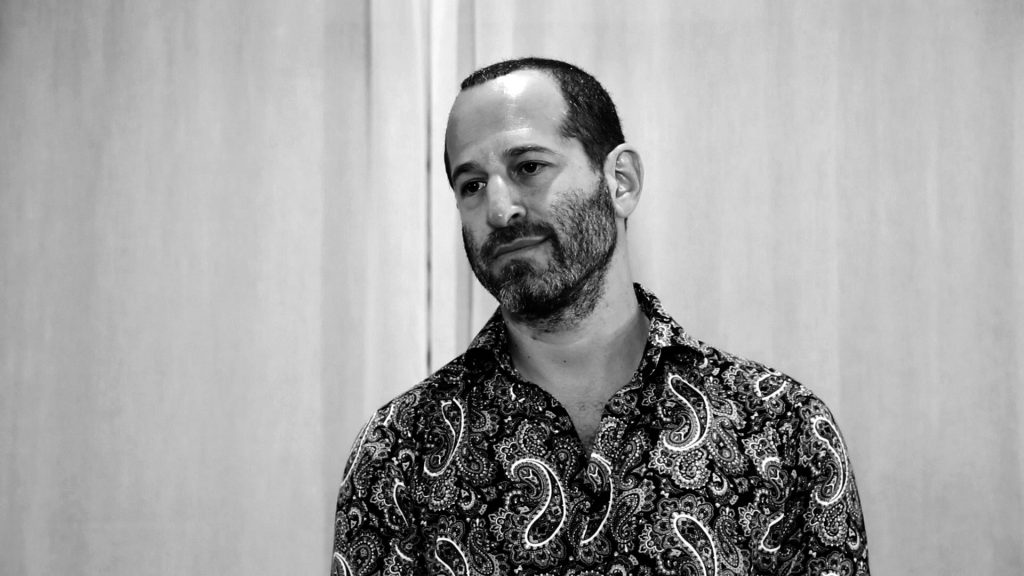“I love y’all,” Yusuf Bey IV told Antoine Mackey and Devaughndre Broussard shortly after they murdered journalist Chauncey Bailey, Broussard testified Monday. Broussard laughed as he said it, even as he had just finished describing in detail the grisly shooting he has confessed to committing, a murder he says was ordered by Bey and planned by all three men.
When Bey said that, they were taking a walk in the park near Lake Merritt. Broussard and Mackey drove to meet Bey at Your Black Muslim Bakery after the murder, and took Bey’s car back to the crime scene. When they found that it was entirely obstructed by police tape, they drove to the north end of the lake to step out of the car and go over the details.
Earlier, Broussard and Mackey had followed Bailey in a white van as he walked around the south end of Lake Merritt. Assuming he was heading to work at the Oakland Post, they parked at the corner of 14th St and Alice St downtown to wait for Bailey. Broussard ran to the northeast corner and then across 14th St when he saw Bailey walking on the sidewalk next to the post office parking lot. He approached to within arms reach of Bailey, raised the Mossberg shotgun he was carrying, and shot him in the torso.
Bailey fell immediately, and Broussard stood at his feet to shoot him in the chest a second time. Broussard then turned to run, took a few steps, and turned back to shoot Bailey one final time in the head, “to make sure he’s dead.”
“Why?” Prosecutor Melissa Krum asked Broussard.
“Because he wasn’t supposed to live,” Broussard responded.
“According to who?”
“According to Yusuf Bey.”
Bey was back at Your Black Muslim Bakery at the time, the business he had inherited from his late father, Yusuf Bey I, a spiritual and political leader who founded the bakery as the center of Oakland’s Black Muslim movement. Broussard and Mackey took Bey IV to the crime scene and then to Lake Merritt, where they got out of the car to talk because Bey believed his car may be tapped.
After about thirty minutes at Lake Merritt, they drove back to the bakery to pick up another associate, Richard Lewis, and the four men shared a drink at IHOP on San Pablo Ave. Bey asked Broussard what the inside of Bailey’s head looked like.
They left IHOP because Bey thought he recognized a police officer in the corner of the restaurant, so they drove to the Emeryville pier and walked along the dock on San Francisco Bay.
Bey anticipated that the murder would bring the bakery respect and financial stability. “The bakery gonna get respected now,” Broussard said Bey told him. “I bet now when we ask for a loan we gonna receive a loan.”
They returned to the bakery, where Broussard gave Bey back the Mossberg shotgun he’d used to kill Bailey. Mackey and Broussard then drove to San Francisco for a meeting with Mackey’s probation officer.
Later that night, Bey gave the Mossberg shotgun back to Broussard to do security duty in the area around the bakery. Broussard didn’t actually do any patrols that night, but instead went to bed, “because I was tired.”
Broussard was awakened early the next morning by loud noises in the hallway. He peeked out of his bedroom door and saw police in the house. He quickly closed the door and threw the shotgun out of his bedroom window, before police entered his room and took him, Mackey, Bey and several others into custody in a 5AM raid.
Krum asked Broussard to identify the individuals arrested during the raid from the pictures taken by the police. When Krum showed him a picture of himself handcuffed and naked except for a pair of blue boxers, Broussard laughed. “That’s me.”
Background
Krum changed her line of questioning at this point, pausing the chronological narrative to fill in some more background about Broussard, his criminal record, and his relationship to Bey and Mackey.
Broussard had arrived to court late that day, at about 10:30AM, and was briefly visible to the audience in his shackles when the bailiff opened the door to the courtroom. His chains were removed before he entered, but he still wore his red prison uniform, and large as it was, it did not cover his oversized white t-shirt.
“Mr. Broussard missed the bus,” Judge Thomas Reardon explained, “by no fault of Mr. Broussard, he doesn’t run the buses, the sheriff does.”
While they waited, Bey and Mackey surveyed the audience, peeking over their shoulders, smiling and whispering to each other. After defense attorneys Gene Peretti and Gary Sirbu took their seats, Bey and Mackey chatted with them, chuckling quietly. Mackey and Bey were particularly well dressed that day: Mackey wore a dark suit that puckered a bit at his shoulderblades as he hunched over the table to keep close to Sirbu; Bey wore a black pinstriped vest over a white collared shirt with a black bow tie, which accented his thin frame.
Krum asked Broussard whether he had considered Mackey a friend, and whether he felt there was a sense of mutual trust between them.
“We was close, we were hanging out together all the time when we was at the bakery,” Broussard explained. He said they socialized together otherwise as well, “we just vibed together.”
He described his relationship with Bey differently, and said he respected him, and looked up to him. “We was cool but not, you know, not bosom buddies,” he said.
Krum presented into evidence a video of Broussard, Mackey, Richard Lewis, and other men doing military style drills at the bakery. Broussard said the purpose of the excercises was for discipline, “for following our orders.”
He said the routines also served as a kind of drug test for those joining the bakery, “if you can’t follow the orders or show coordination, that could show your mind ain’t there or you’re on drugs.”
He spoke about the Student Enrollment Rules of Islam, which was given to members of Your Black Muslim Bakery to learn in their meetings. Broussard had the answers memorized, “at the time I knew them all,” he said.
Broussard had first heard of the bakery while serving time in 2006 for a felony assault charge. It was in prison that he first met Richard Lewis, who recommended the bakery, and said that the people there helped black men that were coming out of prison, and could provide a place to live and a paying job.
Confessions
After the raid on Your Black Muslim Bakery and its surrounding properties, Broussard was questioned by Oakland Police Sgts. Derwin Longmire and Lou Cruz. Broussard initially denied everything, telling them, “I don’t know nothin about nothin. I don’t know what you’re talking about. I plead the fifth. I want to see a lawyer.”
Longmire began telling Broussard detailed information about the murder, claiming he had information that Broussard was involved. Broussard refused to admit guilt, and eventually Longmire revealed to Broussard that Yusuf Bey IV had implicated him in the murder.
They took Broussard to a room with Bey, where Bey told both officers and Broussard that Broussard alone was responsible for Bailey’s murder. Broussard asked to be alone with Bey.
“He was nonchalant,” Broussard testified. “Like it was nothin.”
“I was mad, I was upset,” he went on. “I asked, ‘why did you tell on me?’ He said it was because they raided the bakery for the murder of Chauncey Bailey. Everybody can’t go down for that.”
“You tell them that you did it they’re gonna let me go,” Bey told Broussard. He promised Broussard an attorney once he was released, and the potential for more rewards down the line.
He also told Broussard he was being tested by God, that he needed to sacrifice himself for the good of the bakery.
“I was cryin, man. I felt fucked up. I couldn’t see it.”
Eventually, Broussard confessed to the murder of Chauncey Bailey, and said he had acted alone. He said he did that for several reasons: that he believed that Bey would find him an attorney and he’d be rewarded for his sacrifice, that he believed in the brotherhood of the bakery, and being a Muslim, he was willing to sacrifice himself for the cause.
Broussard also thought that he’d be able to beat the case. “I thought I’d get a good enough attorney to put up a good defense,” he said.
In his initial confession, Broussard told investigators that he was on drugs at the time, and that Bailey had taken a swing at him. He now says that these were lies, and he had lied hoping the altered story would help him beat the case down the line.
Several months later, he appeared on a 60 Minutes interview with Anderson Cooper, and told a substantially different story: that he had not killed Bailey, but that he had relevant information about who did that he would reveal during his trial.
He told Krum that he lied to 60 Minutes, “To muddy up the waters, and put out different versions of the truth.”
Eventually, Broussard met with Alameda County Deputy District Attorney Chris Lamiero, to see if an arrangement could be made for a plea bargain in exchange for information about the Roberson, Wills and Bailey murders. Broussard was eventually offered a reduced sentence of 25 years for the murder of Bailey and Roberson in exchange for truthful testimony, as determined by Judge Reardon. Otherwise, “I’d catch a double homicide,” and face life in prison.
“Why did you decide to tell the truth?” Krum asked, in light of Broussard’s testimony emphasizing the trust and brotherhood he felt between Bey, Mackey and himself.
“I felt like I was let down,” he answered. “I felt like the way we acted towards one another… I thought people were willing to make the same sacrificies.”
“It wasn’t takin a deal so much,” Broussard explained, but rather that he felt betrayed by Bey and Mackey, “because of the simple fact that I didn’t implicate nobody. Blood told the police in front of my face that I killed blood.”
Broussard’s voice steadily rose at this point in the testimony, and he spoke faster. “I thought he was gonna holla at me or somethin,” and he said Bey “broke the contract” between them. Broussard never received an attorney or even a visit from Bey.
So he decided to turn on Bey and Mackey. “I’m gonna tell them [the authorities] what’s up and see what happens,” he said.
“I felt that the bond was strong but, c’mon, blood, you brought this shit on all of us. I’m not gonna do this shit just for the fuck of it. And I only had this opportunity through him, Yusuf Bey IV.”
Krum sat down. “No further questions.”
Cross-examination began that day, but I will cover that in a future article.


